Welcome to the world of luxury on the open seas! Yachts have long symbolized prestige, adventure, and indulgence, captivating the imagination of seafarers and landlubbers alike. Whether you dream of gliding through crystal-clear waters, hosting extravagant parties onboard, or embarking on epic voyages to far-flung destinations, owning a yacht offers a lifestyle unlike any other. In this comprehensive guide, we’ll explore the fascinating world of yacht ownership, from understanding the costs involved to tips for budgeting and financing your maritime dreams. Get ready to set sail on an adventure of a lifetime!
Definition and Significance
At its core, a yacht is a recreational watercraft designed for pleasure cruising, entertainment, and relaxation. Unlike commercial vessels, which serve practical purposes like transportation and cargo shipping, yachts are crafted with extravagance in mind. They boast spacious decks, lavish interiors, and an array of amenities to cater to the needs and desires of their owners and guests.
Types of Yachts
Yachts come in various shapes, sizes, and styles to suit different preferences and purposes. From sleek, streamlined motor yachts to majestic sailing vessels, there’s a yacht for every taste and lifestyle.
- Motor Yachts: Powered by engines, motor yachts offer speed, stability, and versatility. They come in a range of sizes, from compact day cruisers to sprawling superyachts equipped with multiple decks and luxury amenities.
- Sailing Yachts: Embodying the timeless allure of seafaring tradition, sailing yachts harness the power of the wind to glide gracefully across the water. With their elegant lines and billowing sails, they evoke a sense of romance and adventure reminiscent of bygone eras.
- Explorer Yachts: Designed for intrepid travelers and adventurous souls, explorer yachts combine rugged durability with luxury comforts. Equipped for long-range cruising and exploration, these vessels are capable of venturing off the beaten path to remote and exotic destinations.
- Catamarans and Trimarans: Known for their stability and spaciousness, catamarans and trimarans feature multiple hulls and expansive deck areas. They offer ample living space, excellent maneuverability, and a smooth, comfortable ride, making them popular choices for extended cruising and charter vacations.
- Luxury Day Boats: For those seeking a taste of the yachting lifestyle without the commitment of ownership, luxury day boats provide a stylish and sophisticated way to spend a day on the water. With their sleek designs, high-performance engines, and deluxe amenities, these vessels are perfect for entertaining friends, hosting corporate events, or simply enjoying a day of leisure.
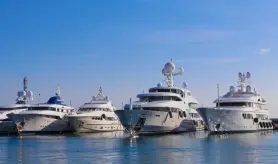
In the world of yachting, each vessel is a unique expression of its owner’s personality and preferences. Whether cruising the Mediterranean, exploring the Caribbean, or embarking on a world voyage, yachts offer a luxurious escape from the ordinary and a gateway to unforgettable experiences on the high seas.
Factors Influencing Yacht Cost
The cost of purchasing a yacht is influenced by a myriad of factors, each contributing to the overall price tag. Understanding these factors is essential for prospective buyers to make informed decisions and budget accordingly.
Size and Dimensions
One of the most significant determinants of yacht cost is its size and dimensions. Yachts come in a range of sizes, from compact day cruisers to sprawling superyachts spanning several hundred feet in length. Larger yachts typically require more materials, labor, and engineering expertise to construct, resulting in higher purchase prices.
Brand and Reputation
The reputation of the yacht manufacturer also plays a crucial role in pricing. Yachts crafted by renowned shipyards known for their quality craftsmanship, innovation, and attention to detail often command premium prices. Buyers are willing to pay a premium for the assurance of superior build quality, reliability, and resale value associated with reputable brands.
Features and Amenities
The features and amenities onboard a yacht significantly impact its cost. From opulent staterooms and gourmet kitchens to state-of-the-art entertainment systems and water toys, luxury yachts are equipped with an array of amenities to enhance the onboard experience. The inclusion of high-end materials, cutting-edge technology, and custom design elements can drive up the price substantially.
Customization Options
For buyers seeking a yacht tailored to their specific preferences and lifestyle, customization options are available at an additional cost. Customization allows buyers to personalize their yacht with unique finishes, layouts, and features to create a vessel that reflects their individual tastes and requirements. However, customization comes with a price premium, as it involves additional design, engineering, and fabrication work beyond the standard build.
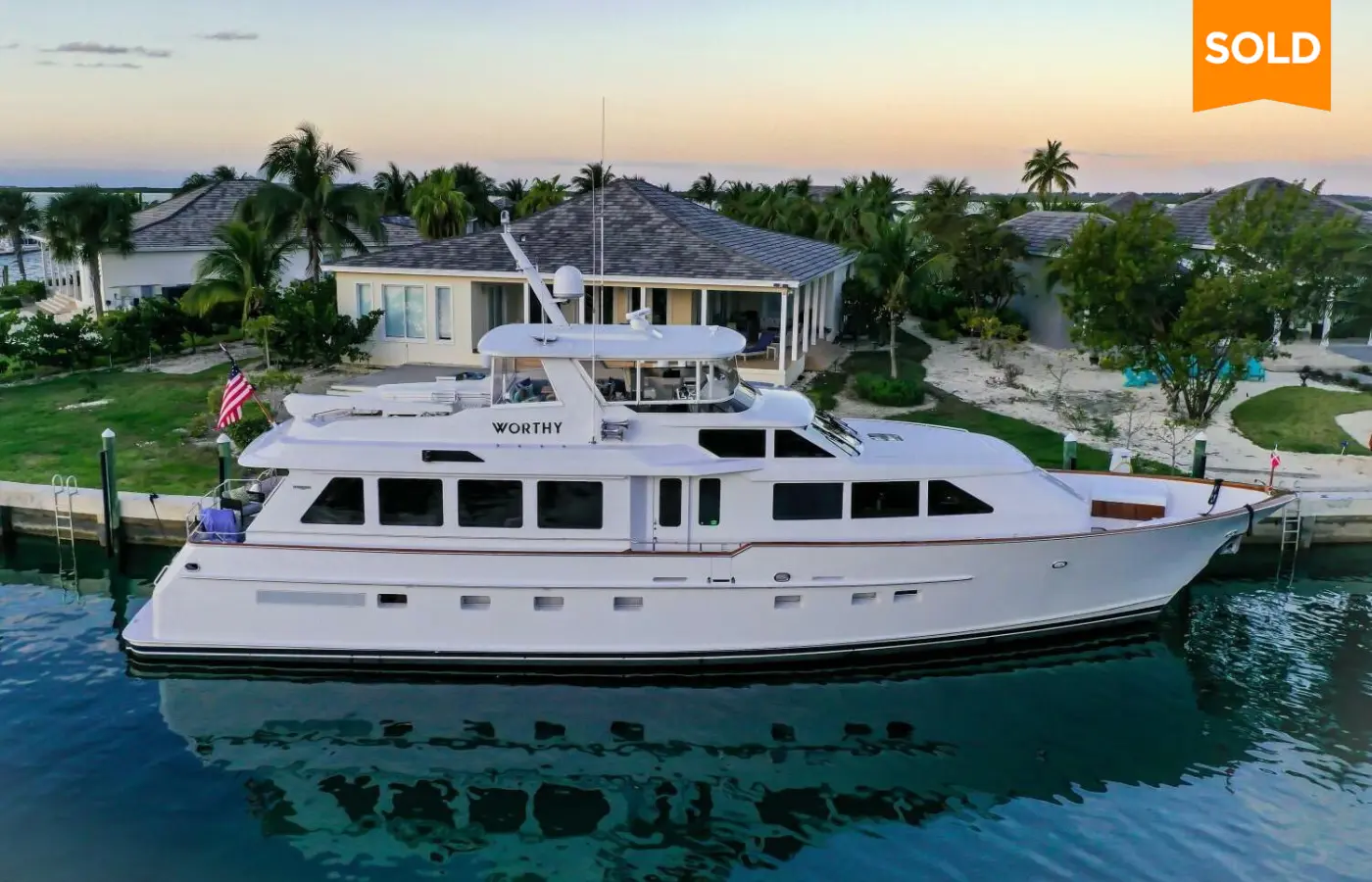
By considering these factors and carefully evaluating their priorities and budgetary constraints, prospective yacht buyers can navigate the market with confidence and select a vessel that meets their needs and exceeds their expectations.
Understanding Yacht Pricing
To grasp the intricacies of yacht pricing, it’s essential to delve into the various components that contribute to the overall cost of ownership. From the base price of the yacht to ongoing expenses, understanding the financial aspects of yacht ownership is crucial for prospective buyers.
Base Price vs. Additional Costs
The base price of a yacht represents the cost of the vessel itself, including standard features and amenities as specified by the manufacturer. However, it’s essential to recognize that the base price is just the starting point, as there are numerous additional costs associated with yacht ownership.
- Upgrades and Customization: Buyers often opt for upgrades and customization to personalize their yacht to their preferences. These additional features can include premium materials, advanced technology, and bespoke design elements, all of which incur extra costs.
- Taxes and Fees: In addition to the purchase price, buyers must factor in taxes, registration fees, and other governmental charges associated with acquiring a yacht. These expenses vary depending on the jurisdiction and can significantly impact the total cost of ownership.
- Delivery and Transport: Transporting a yacht from the shipyard to its final destination can incur substantial expenses, particularly for large vessels requiring specialized equipment and logistical support. Delivery costs include craning, shipping, and insurance, all of which contribute to the overall price tag.
Maintenance Expenses
Owning a yacht entails ongoing maintenance to ensure its seaworthiness, performance, and aesthetic appeal. Maintenance expenses encompass a wide range of services and tasks, including:
- Routine Servicing: Regular maintenance tasks such as engine servicing, hull cleaning, and system checks are essential for keeping the yacht in optimal condition and preventing mechanical issues.
- Repairs and Upkeep: Over time, yachts may require repairs and refurbishments to address wear and tear, equipment failures, or damage from environmental factors. From replacing worn-out components to refurbishing interiors, these repairs can be costly and unpredictable.
- Annual Haul-Outs: Periodic haul-outs for inspection, maintenance, and bottom painting are necessary to maintain the yacht’s structural integrity and performance. Haul-out costs vary depending on the size of the vessel and the extent of the work required.
Insurance and Docking Fees
Yacht owners must also budget for insurance premiums to protect their investment against risks such as theft, damage, liability, and natural disasters. Insurance costs are influenced by factors such as the yacht’s value, cruising area, and usage patterns.
In addition to insurance, yacht owners incur docking fees for mooring their vessel at marinas, yacht clubs, or private docks. Docking fees vary depending on the location, facilities, and services provided, with prime locations commanding higher rates.
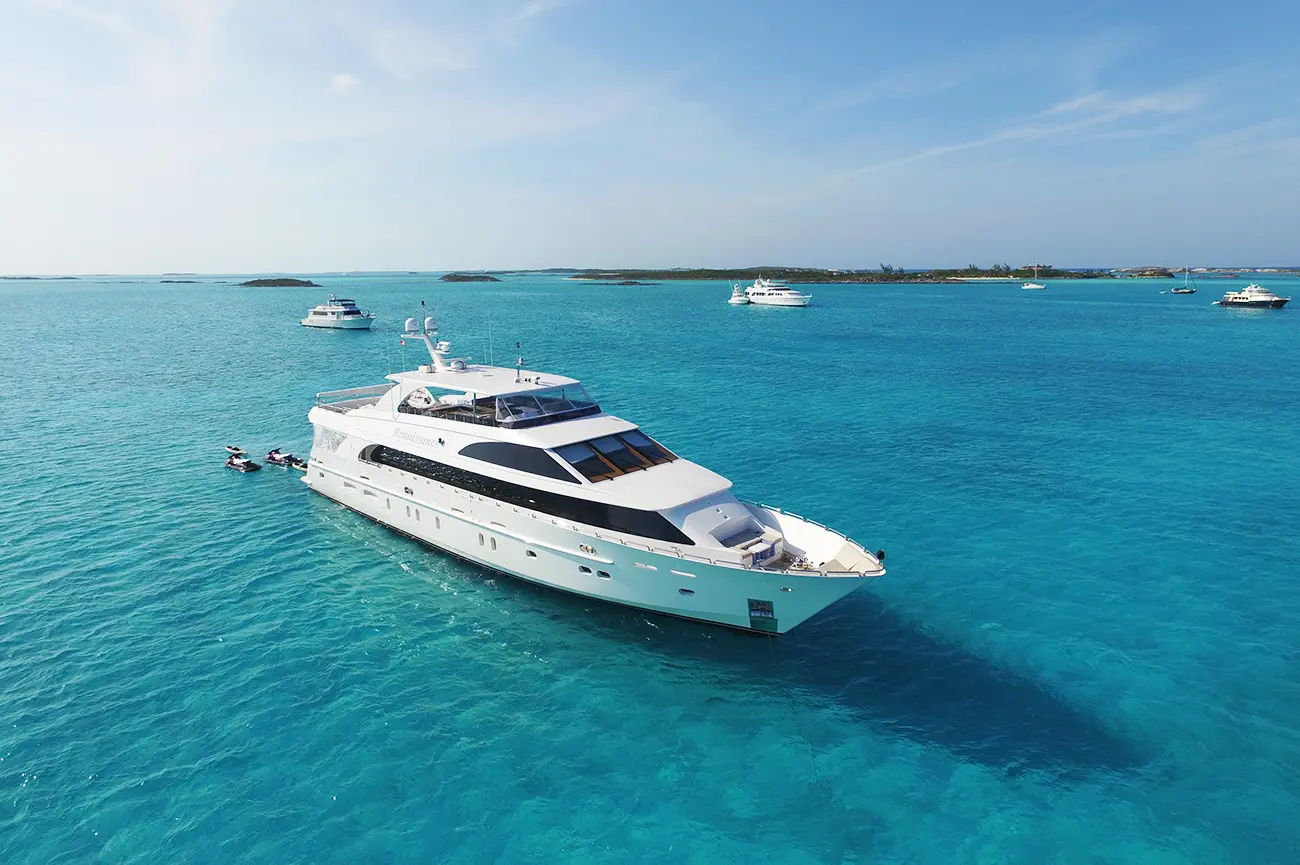
By understanding the base price of the yacht and factoring in additional costs such as maintenance, insurance, and docking fees, prospective buyers can develop a comprehensive understanding of the financial implications of yacht ownership.
Range of Yacht Costs
Yacht prices span a broad spectrum, ranging from relatively affordable entry-level vessels to ultra-luxurious superyachts commanding astronomical prices. Understanding the different tiers of yacht costs allows prospective buyers to explore options that align with their budget and preferences.
Entry-level Yachts
Entry-level yachts offer an accessible entry point into the world of yachting for those with more modest budgets. While these vessels may lack the extravagant features and opulent amenities of their high-end counterparts, they still provide a comfortable and enjoyable onboard experience. Entry-level yachts typically range in price from several hundred thousand to a few million dollars, depending on factors such as size, brand, and condition. Despite their lower price point, entry-level yachts can still offer respectable performance, comfort, and style, making them an attractive option for first-time buyers or those seeking a more economical choice.
Mid-range Yachts
Mid-range yachts strike a balance between affordability and luxury, appealing to buyers who desire upscale features without the exorbitant costs associated with top-tier vessels. These yachts offer a higher level of craftsmanship, design sophistication, and onboard amenities compared to entry-level models, catering to discerning buyers with more generous budgets. Prices for mid-range yachts typically range from several million to tens of millions of dollars, depending on factors such as size, brand, customization, and equipment. While mid-range yachts may not offer the same level of extravagance as their luxury counterparts, they still provide an impressive array of features and comforts, making them an attractive option for buyers seeking value and quality.
Luxury and Superyachts
At the pinnacle of the market are luxury and superyachts, which epitomize extravagance, sophistication, and exclusivity. These floating palaces are the ultimate expression of wealth and status, boasting unparalleled levels of luxury, opulence, and refinement. Prices for luxury and superyachts can range from tens of millions to hundreds of millions of dollars, with some ultra-luxury vessels fetching prices in the billions. These yachts are equipped with every conceivable amenity and indulgence, from lavish staterooms and gourmet kitchens to helipads, movie theaters, and swimming pools. Designed and built by the world’s most prestigious shipyards, luxury and superyachts represent the pinnacle of yachting excellence, catering to the needs and desires of the world’s wealthiest individuals.
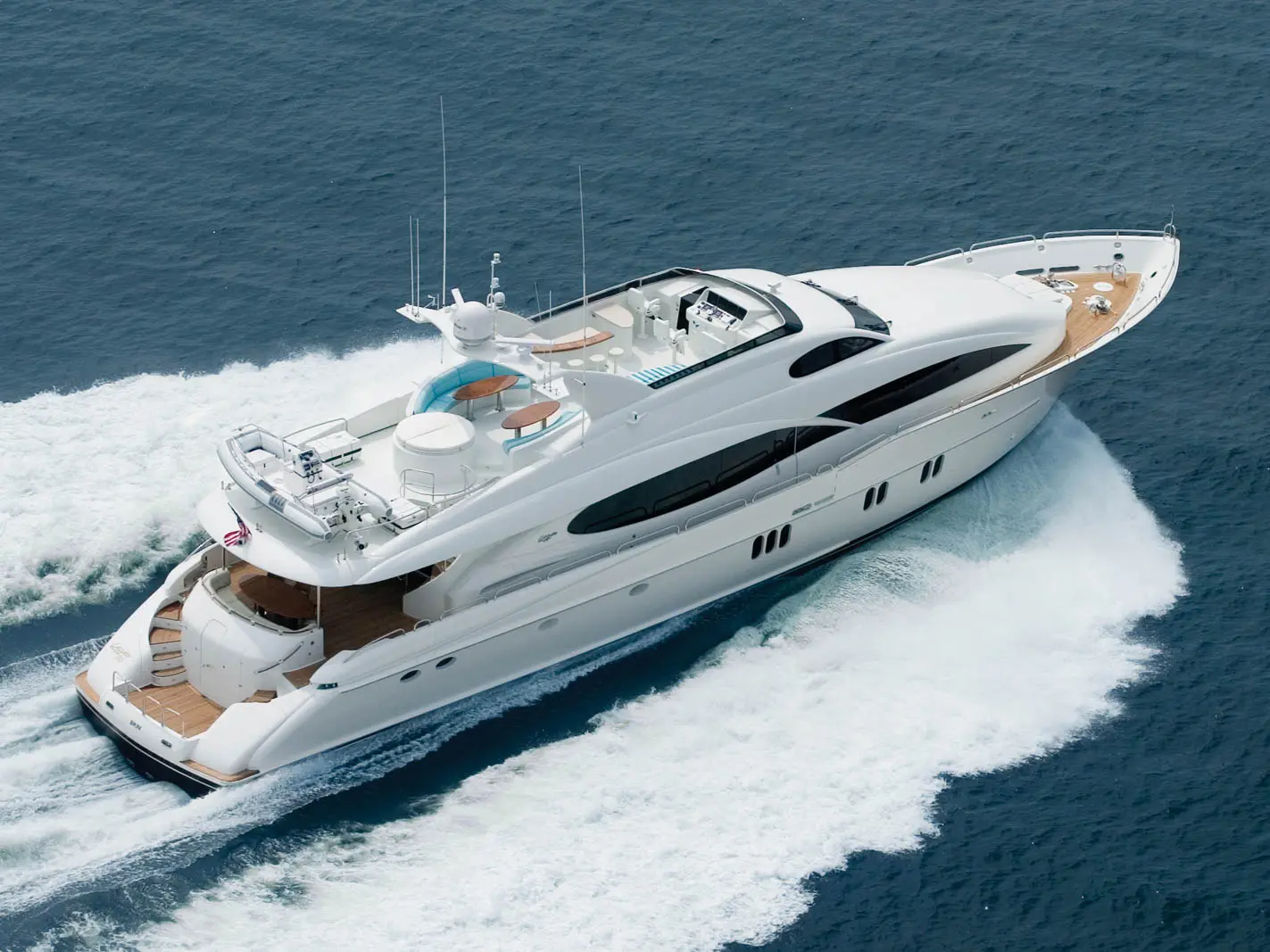
By understanding the range of yacht costs and the features associated with each price tier, prospective buyers can make informed decisions that align with their budget, lifestyle, and aspirations. Whether seeking a modest day cruiser, a luxurious motor yacht, or a palatial superyacht, there’s a vessel to suit every taste and preference in the world of yachting.
Buying vs. Renting a Yacht
When considering yacht ownership, individuals are faced with the decision of whether to buy or rent a yacht. Both options offer unique advantages and considerations, depending on factors such as budget, frequency of use, and personal preferences.
Pros and Cons of Each Option
Buying a Yacht
Pros:
- Ownership: Purchasing a yacht grants full ownership and control over the vessel, allowing owners to customize it to their preferences and use it whenever they please.
- Long-Term Investment: While yachts depreciate over time, they can still retain significant value, particularly if well-maintained and cared for. Some owners even see their yacht as a potential investment opportunity.
- Freedom and Flexibility: Yacht owners enjoy the freedom to explore the open waters at their leisure, without the constraints of rental agreements or schedules.
Cons:
- High Initial Cost: Buying a yacht requires a substantial upfront investment, including the purchase price, taxes, registration fees, and other associated expenses.
- Ongoing Expenses: Yacht ownership entails ongoing costs such as maintenance, insurance, docking fees, and crew salaries, which can add up significantly over time.
- Responsibility: Owners are responsible for the upkeep, maintenance, and operation of the yacht, which can be time-consuming and require specialized knowledge and skills.
Renting a Yacht
Pros:
- Cost Savings: Renting a yacht can be a more cost-effective option for those who only plan to use it occasionally, as it eliminates the need for a substantial upfront investment.
- Convenience: Renting a yacht allows individuals to enjoy all the benefits of yachting without the responsibilities and commitments associated with ownership, such as maintenance and storage.
- Variety and Flexibility: Renters have the flexibility to choose from a wide range of yachts and destinations, tailoring their experience to suit their preferences and budget.
Cons:
- Limited Control: Renters must adhere to the terms and conditions set forth by the yacht rental company, including usage restrictions, itinerary limitations, and additional fees for damages or excessive wear and tear.
- Lack of Personalization: While rental yachts may offer luxurious amenities and comforts, they may not be customized to the renter’s preferences or equipped with specific features desired by the individual.
- Potential Availability Issues: During peak seasons or popular destinations, securing a rental yacht may be challenging, requiring advanced booking and potentially limiting options.
Financial Considerations
When weighing the decision to buy or rent a yacht, individuals should consider their financial situation, lifestyle preferences, and long-term goals. Buying a yacht may be more suitable for those who value ownership, independence, and customization, while renting may be preferable for those seeking flexibility, cost savings, and convenience.
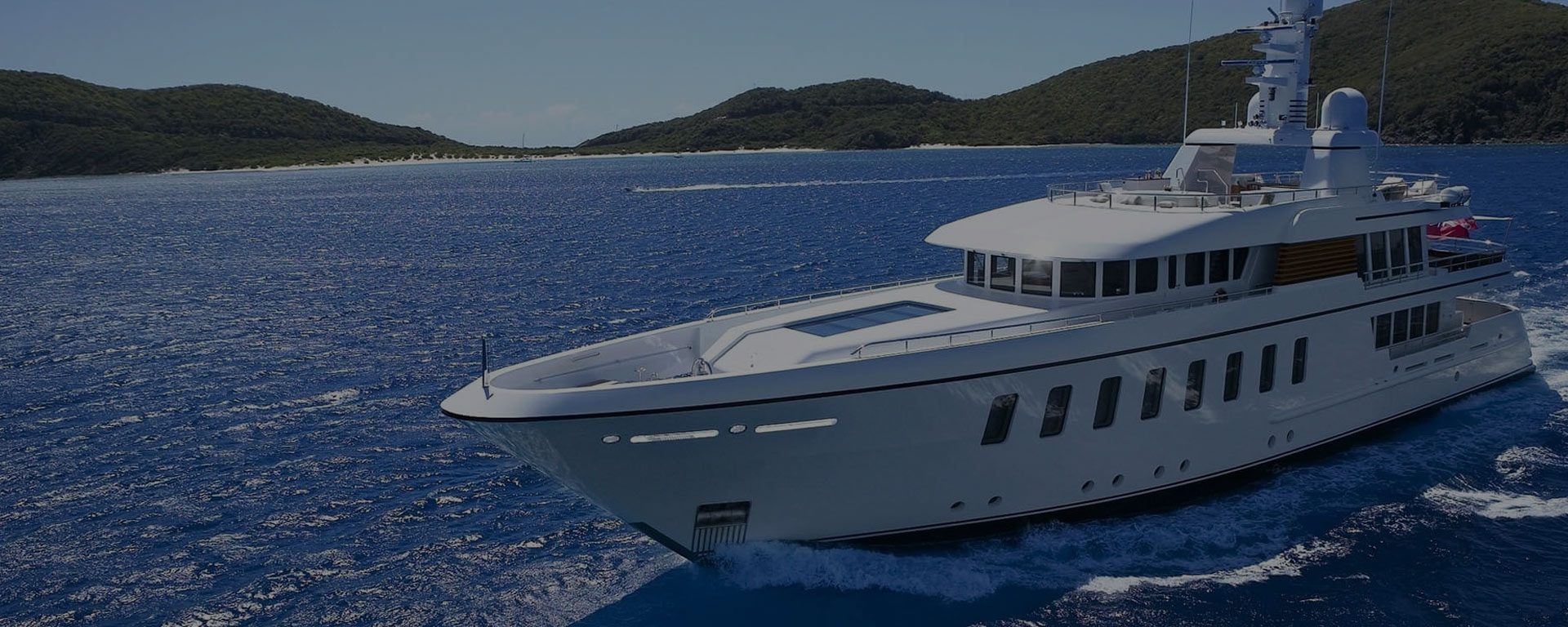
Ultimately, the choice between buying and renting a yacht is a personal one that depends on individual circumstances and priorities. By carefully evaluating the pros and cons of each option and considering their financial implications, individuals can make an informed decision that aligns with their yachting aspirations and lifestyle preferences.
Tips for Budgeting and Affording a Yacht
For individuals aspiring to own a yacht, strategic budgeting and financial planning are essential to make this dream a reality. By following these tips, prospective buyers can better manage their finances and afford the yacht of their dreams:
Setting a Budget
Before embarking on the journey to yacht ownership, it’s crucial to establish a realistic budget based on one’s financial resources, income, and long-term financial goals. Consideration should be given to not only the purchase price of the yacht but also ongoing expenses such as maintenance, insurance, and docking fees. By setting a budget early on, buyers can avoid overspending and ensure they’re financially prepared for the responsibilities of yacht ownership.
Researching Financing Options
For many buyers, financing is a necessary part of purchasing a yacht. Researching and understanding the various financing options available can help individuals secure the best terms and rates for their situation. Marine loans, yacht leases, and other financing arrangements offer flexibility and convenience, allowing buyers to spread out payments over time and manage their cash flow more effectively. By exploring different financing options and working with reputable lenders, buyers can find a solution that fits their needs and budget.
Negotiating Purchase Price
When purchasing a yacht, don’t be afraid to negotiate with sellers or dealerships to secure the best possible price. Conduct thorough research on market trends, comparable listings, and the condition of the vessel to strengthen your bargaining position and negotiate with confidence. Sellers may be willing to offer discounts, incentives, or additional perks to close the deal, so it’s essential to explore all avenues for potential savings. By negotiating effectively, buyers can lower the purchase price and reduce the financial burden of yacht ownership.
Planning for Ongoing Expenses
Yacht ownership entails more than just the initial purchase price; it also involves ongoing expenses for maintenance, insurance, docking fees, and other operational costs. Before committing to buying a yacht, carefully consider these ongoing expenses and ensure they align with your budget and financial capabilities. Factor in potential fluctuations in costs due to market conditions, inflation, and unexpected repairs or upgrades. By planning ahead and budgeting for these expenses, buyers can avoid financial strain and enjoy their yacht with peace of mind.
Seeking Professional Advice
Navigating the complexities of yacht ownership and financing can be challenging, especially for first-time buyers. Seeking advice from experienced professionals such as yacht brokers, financial advisors, and marine industry experts can provide valuable insights and guidance throughout the buying process. These professionals can offer personalized recommendations, negotiate on your behalf, and help you make informed decisions that align with your financial goals and lifestyle preferences. By leveraging their expertise, buyers can streamline the buying process and ensure a smooth transition into yacht ownership.
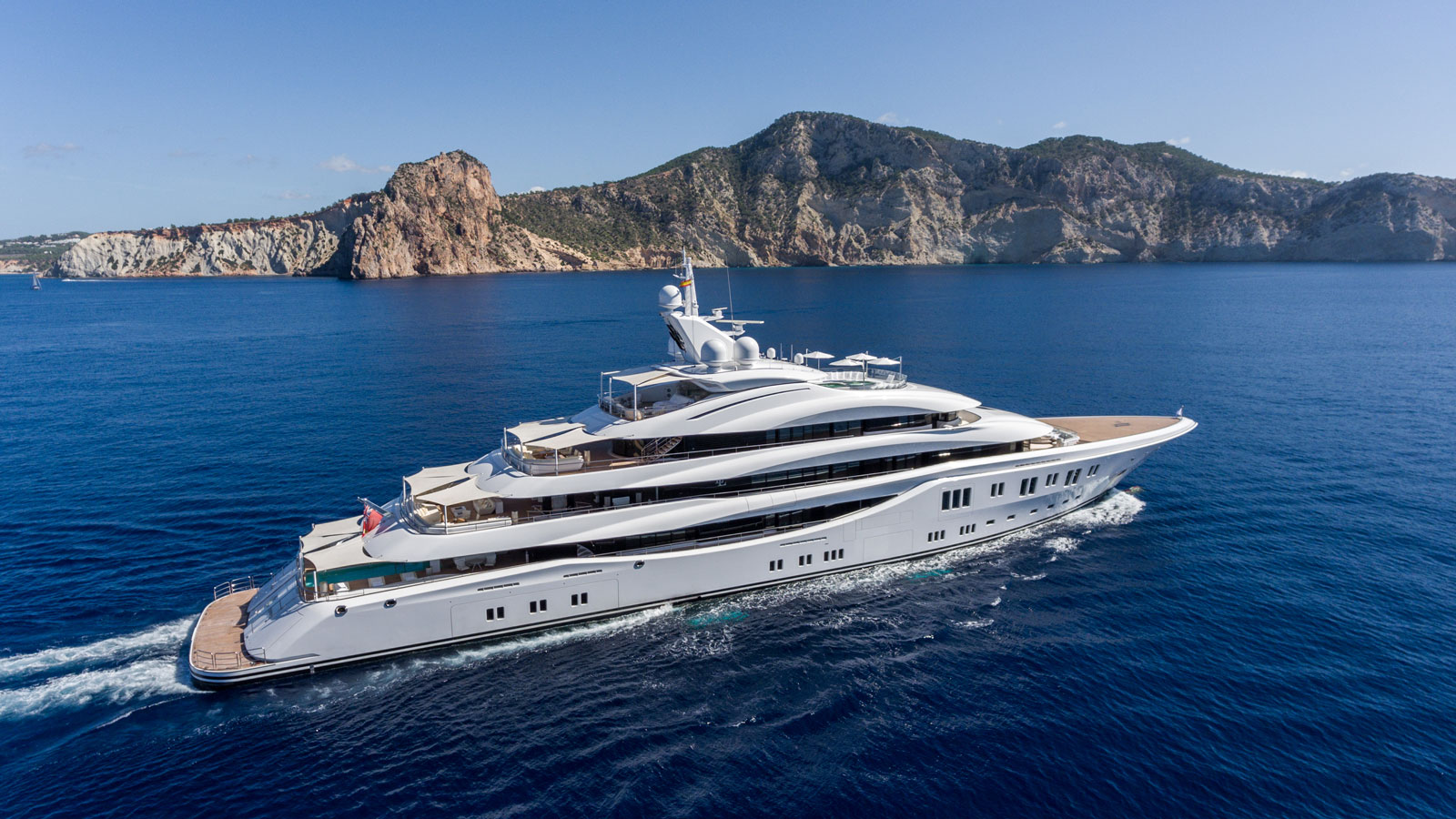
By following these tips for budgeting and affording a yacht, prospective buyers can make their dream of yacht ownership a reality while maintaining financial stability and security. With careful planning, research, and strategic decision-making, owning a yacht can be a rewarding and fulfilling experience that brings joy and excitement for years to come.
Hidden Costs to Consider
While the allure of yacht ownership is undeniable, it’s essential for prospective buyers to be aware of the hidden costs associated with maintaining and operating a yacht. Beyond the initial purchase price and standard expenses, there are several additional factors to consider that can impact the overall cost of ownership:
Upgrades and Modifications
Customizing a yacht to suit personal preferences and lifestyle requirements often involves additional expenses for upgrades and modifications. Whether it’s installing state-of-the-art technology, upgrading interior finishes, or adding luxury amenities, these customizations can significantly increase the total cost of the yacht. Buyers should budget accordingly for customization projects and consult with professionals to ensure they align with their vision and budget.
Crew Salaries
For larger yachts requiring professional crew members to operate and maintain them, crew salaries represent a significant ongoing expense. Captains, engineers, deckhands, chefs, and stewardesses all require competitive salaries, benefits, and accommodations, adding to the overall cost of ownership. Owners should budget for crew salaries and factor them into their financial planning to ensure smooth operations and quality service onboard.
Repairs and Refurbishments
As with any vessel, yachts require regular maintenance and occasional repairs to keep them in optimal condition. From engine overhauls and hull repairs to interior refurbishments and system upgrades, these repairs and refurbishments can be costly and unpredictable. Owners should set aside funds for routine maintenance and establish contingency reserves for unexpected repairs to avoid financial strain and ensure the yacht remains seaworthy and functional.
Insurance Premiums
Insuring a yacht against risks such as theft, damage, liability, and natural disasters is essential for protecting the owner’s investment and mitigating financial losses. However, yacht insurance premiums can be substantial, particularly for high-value vessels or those operating in high-risk areas. Owners should shop around for comprehensive insurance coverage and consider factors such as coverage limits, deductibles, and exclusions to find a policy that offers adequate protection at a reasonable cost.
Docking and Storage Fees
Mooring a yacht at a marina or yacht club comes with associated docking fees, which can vary depending on factors such as location, facilities, and vessel size. Additionally, owners may incur storage fees for offseason storage or long-term berthing at a boatyard or storage facility. These fees can add up over time and should be factored into the overall cost of yacht ownership to avoid surprises and budgetary strain.
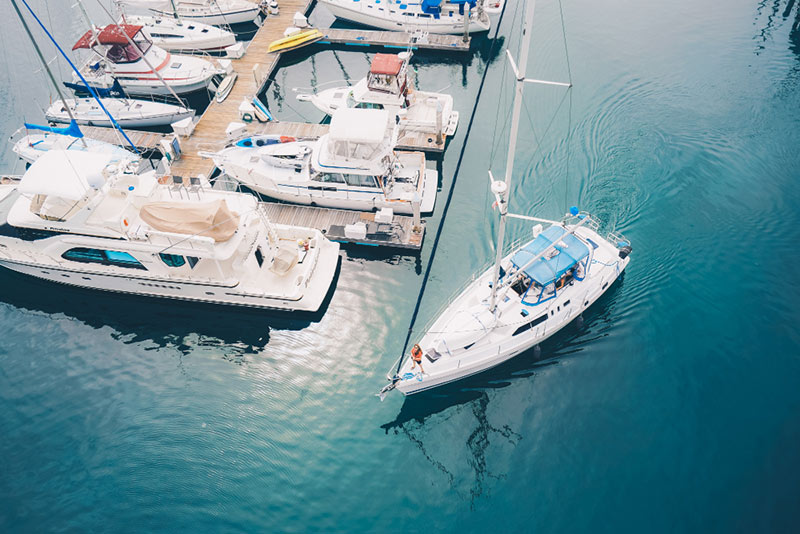
By considering these hidden costs and incorporating them into their financial planning, prospective yacht owners can make informed decisions and ensure they’re prepared for the full spectrum of expenses associated with yacht ownership. While the initial purchase price may be the most visible aspect of buying a yacht, it’s essential to account for these additional costs to maintain financial stability and enjoy the yachting lifestyle to its fullest potential.
Case Studies: Examples of Yacht Costs
Examining real-life examples of yacht transactions provides valuable insights into the diverse range of prices in the market and the factors influencing yacht costs. Here are a few case studies showcasing different types of yachts and their associated costs:
Case Study 1: Entry-Level Yacht
- Yacht Model: 30-foot motor yacht
- Features: Basic amenities, compact layout
- Purchase Price: $200,000
- Additional Costs: Registration fees, delivery charges, basic maintenance
- Total Cost of Ownership: Approximately $220,000
This entry-level yacht offers an affordable entry point into yacht ownership for buyers seeking a compact, no-frills vessel. While it lacks the extravagant features and amenities of larger yachts, it provides a comfortable and enjoyable onboard experience for cruising and day trips. The total cost of ownership includes the purchase price, registration fees, delivery charges, and basic maintenance costs over the first year of ownership.
Case Study 2: Mid-Range Yacht
- Yacht Model: 50-foot sailing yacht
- Features: Spacious interior, luxury finishes, sailing capabilities
- Purchase Price: $1.5 million
- Additional Costs: Customization options, annual maintenance, insurance premiums
- Total Cost of Ownership: Approximately $1.7 million
This mid-range yacht offers a balance of luxury and affordability, catering to buyers seeking upscale features without the exorbitant costs of high-end vessels. With its spacious interior, high-quality finishes, and sailing capabilities, it provides an elegant and comfortable onboard experience for cruising and long-distance voyages. The total cost of ownership includes the purchase price, customization options, annual maintenance, and insurance premiums over the first year of ownership.
Case Study 3: Luxury Superyacht
- Yacht Model: 150-foot luxury superyacht
- Features: Helipad, multiple decks, gourmet kitchen, spa, cinema
- Purchase Price: $50 million
- Additional Costs: Crew salaries, ongoing maintenance, insurance premiums, docking fees
- Total Cost of Ownership: Approximately $55 million (per annum)
This luxury superyacht represents the pinnacle of yachting excellence, offering unparalleled extravagance, sophistication, and opulence. With its extensive amenities, spacious living areas, and state-of-the-art facilities, it provides an unparalleled onboard experience for the world’s wealthiest individuals. The total cost of ownership includes the purchase price, crew salaries, ongoing maintenance, insurance premiums, and docking fees over the first year of ownership. Additionally, owners can expect annual expenses of several million dollars to cover operational costs, crew salaries, and other ongoing expenses.
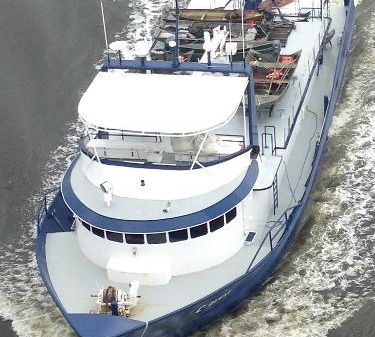
By examining these case studies, prospective buyers can gain a better understanding of the range of yacht costs and the factors influencing pricing in the market. Whether seeking an entry-level yacht for occasional cruising or a luxury superyacht for extravagant adventures, there’s a vessel to suit every taste, budget, and lifestyle in the world of yachting.
Conclusion
In conclusion, the cost of owning a yacht varies widely depending on factors such as size, brand, features, and customization options. From entry-level vessels to luxury superyachts, there’s a yacht to suit every budget and preference in the diverse world of yachting. While yacht ownership represents the pinnacle of luxury living, it also entails significant financial responsibilities and ongoing expenses. Prospective buyers must carefully consider their budget, lifestyle, and long-term goals when deciding whether to buy or rent a yacht. By planning ahead, conducting thorough research, and seeking professional advice, individuals can navigate the complexities of yacht ownership with confidence and make informed decisions that align with their aspirations. Whether cruising the open seas or exploring exotic destinations, yacht ownership offers unparalleled freedom, adventure, and luxury for those with a passion for the maritime lifestyle.
FAQs
How much does a basic yacht cost?
The cost of a basic yacht can vary widely depending on factors such as size, brand, and features. Entry-level yachts typically range from several hundred thousand to a few million dollars.
What features contribute to a yacht’s price?
Luxury amenities, customization options, brand reputation, and size are key factors that influence a yacht’s price. High-end materials, advanced technology, and bespoke design elements can also contribute to the overall cost.
Can I afford a yacht on a moderate budget?
With careful budgeting and financing, it’s possible to afford a yacht on a moderate budget. Buyers should explore financing options, negotiate purchase prices, and consider ongoing expenses to ensure yacht ownership is within their financial means.
Are there ongoing expenses after purchasing a yacht?
Yes, yacht ownership entails ongoing expenses such as maintenance, insurance, docking fees, crew salaries, and operational costs. Prospective buyers should budget for these expenses to ensure they can afford the full cost of ownership.
What are some financing options for buying a yacht?
Financing options for buying a yacht include marine loans, yacht leases, and other financing arrangements offered by banks, lenders, and yacht dealerships. Buyers should compare terms, rates, and repayment options to find a financing solution that suits their needs and budget.
